Abstract
Factors influencing the uptake of the sodium salt of 2,4-dichlorophenoxyacetic acid (2,4-D), under conditions in which no net metabolism occurred, were investigated in an effort to determine both the significance of “non-metabolic” uptake as a potential agent in reducing pesticide levels and the mechanisms involved. Uptake of 2,4-D was affected by pH, temperature, and the presence of other organic and inorganic compounds. Uptake was more pronounced at pH values less than 6, which implies that there may be some interaction between charged groups on the cell and the ionized carboxyl group of 2,4-D. Active transport, carrier-mediated diffusion, passive diffusion, and adsorption were considered as possible mechanisms. Though uptake was inhibited by glucose, sodium azide, and fluorodinitrobenzene (but not by uranyl ion), 2,4-D was not accumulated against a concentration gradient, a necessary consequence of an active transport system, nor was isotope counterflow found to occur. Thus, carrier-mediated diffusion was finally precluded, implying that uptake probably occurs by a two-step process: sorption onto the cell wall followed by passive diffusion into the cytoplasm.
Full text
PDF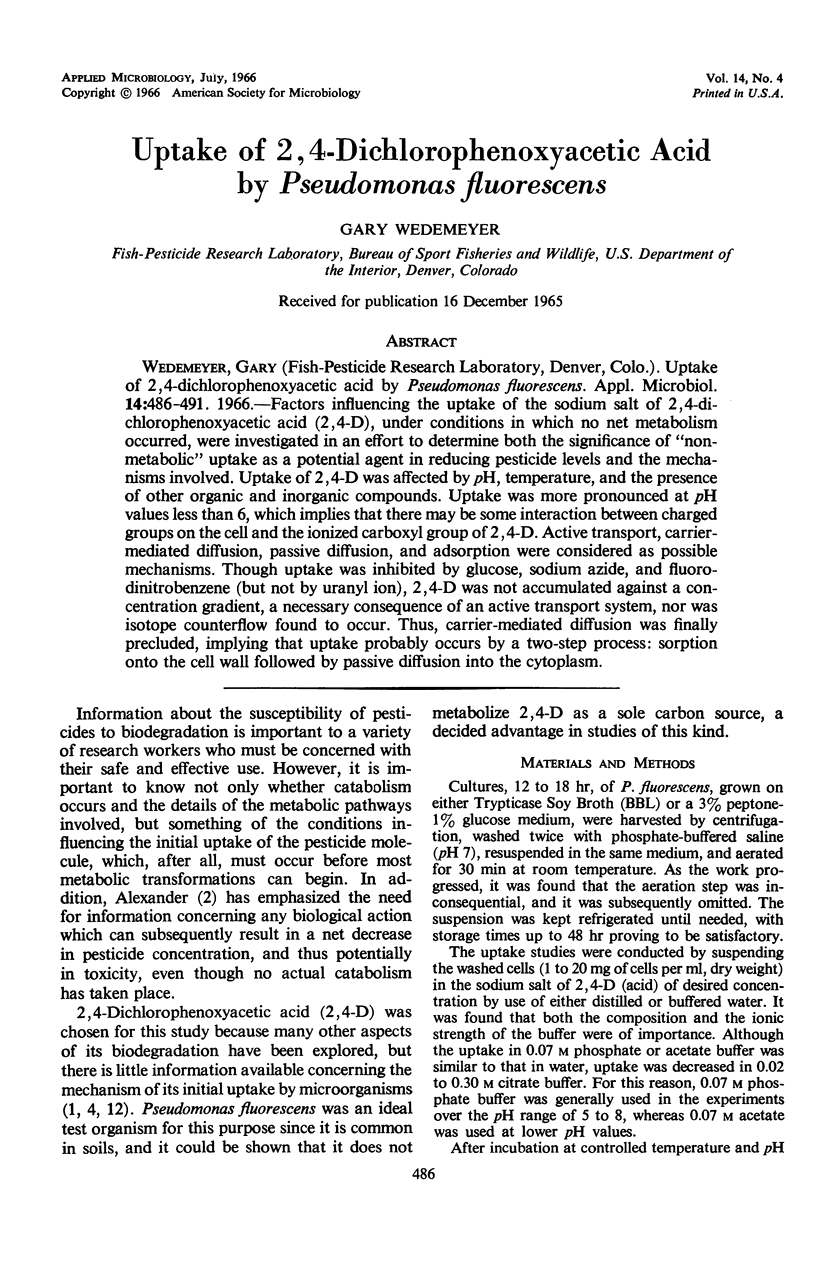
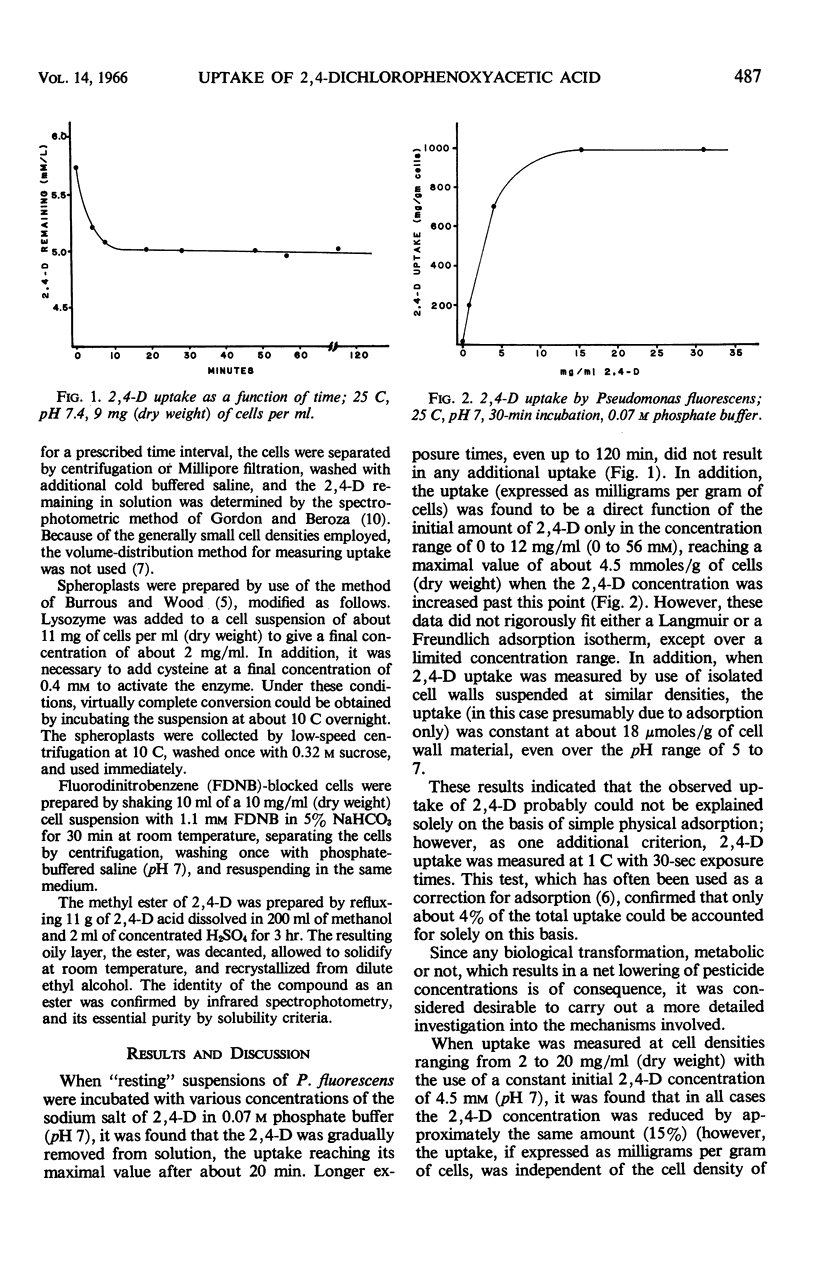
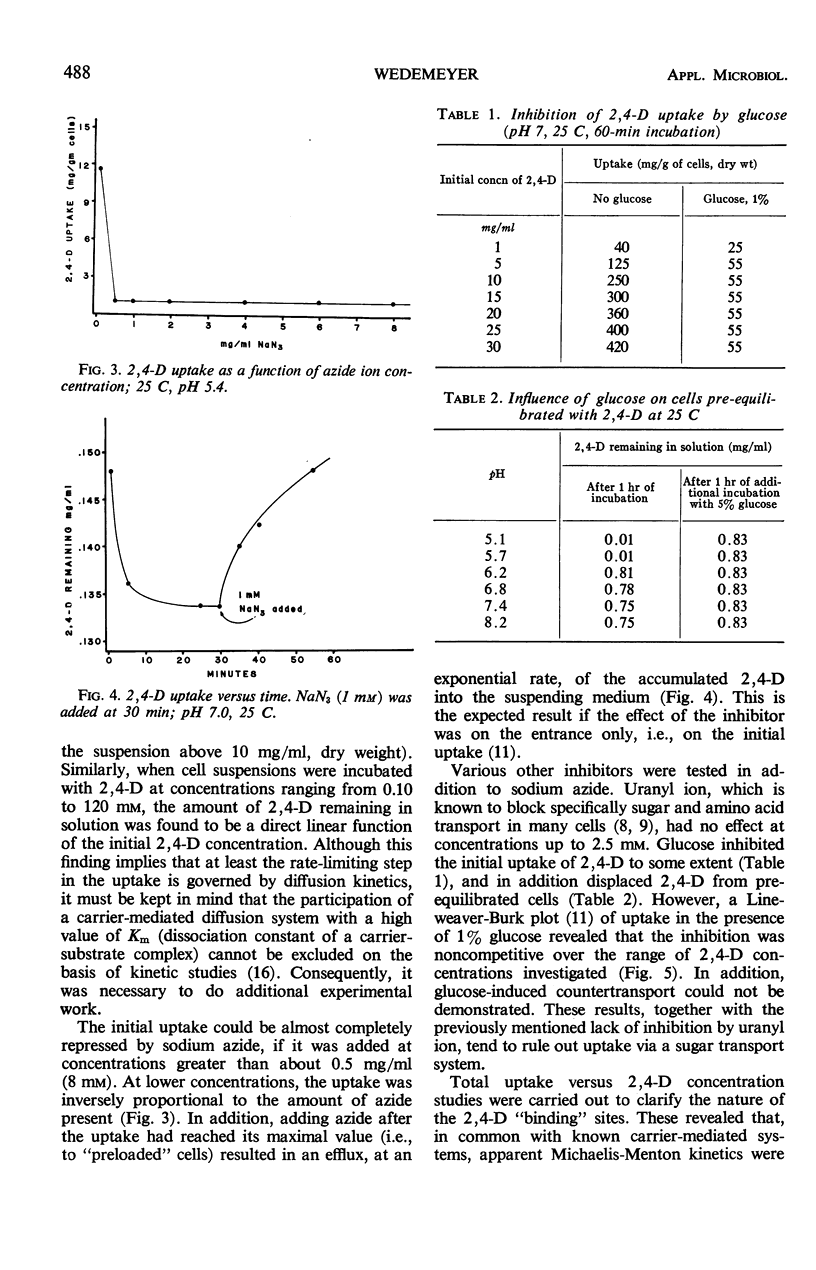
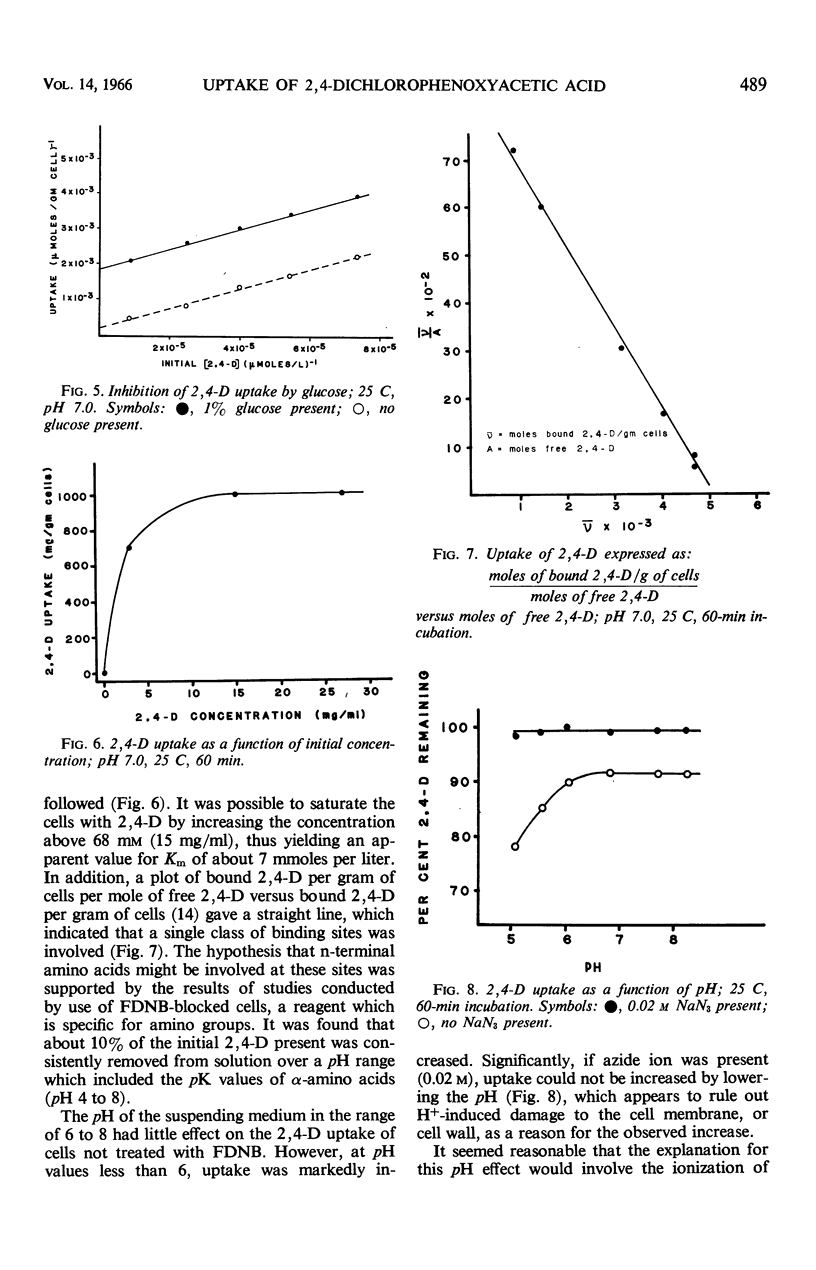
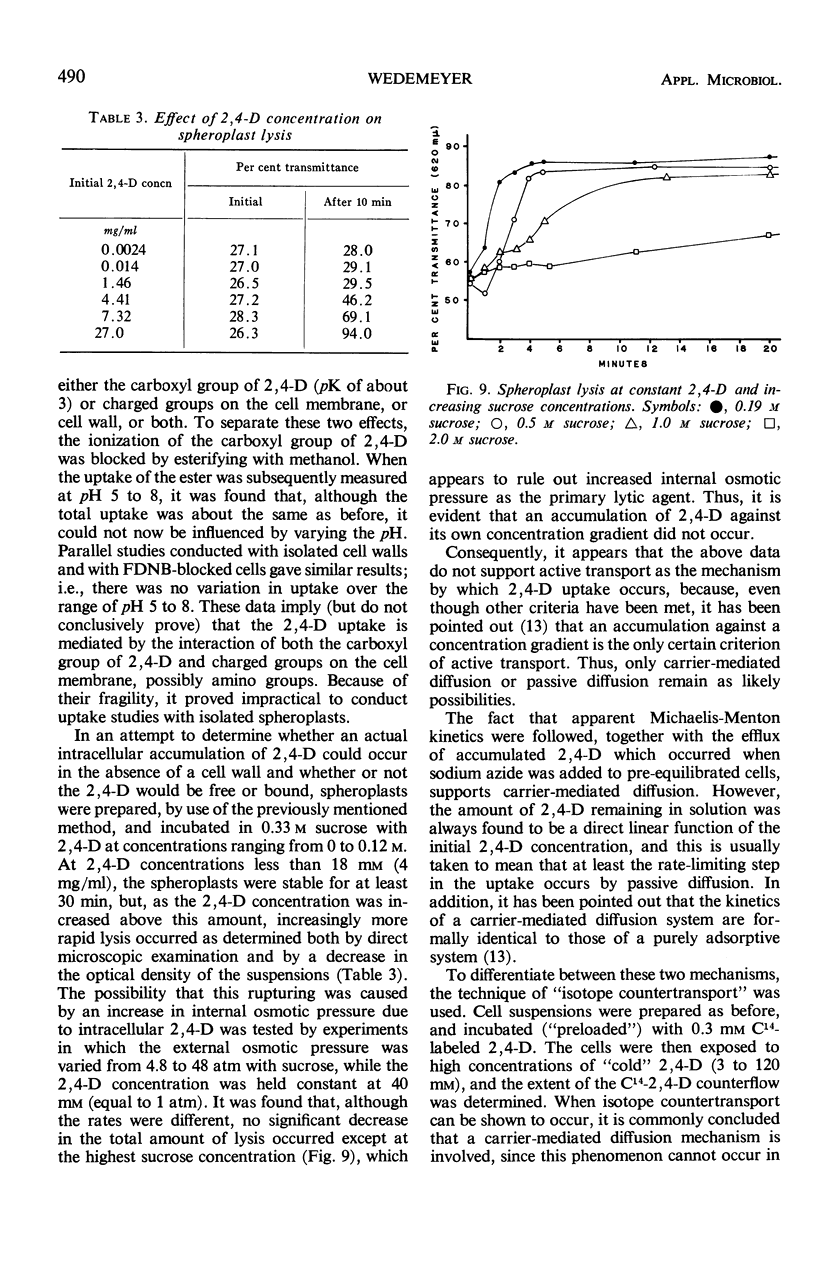
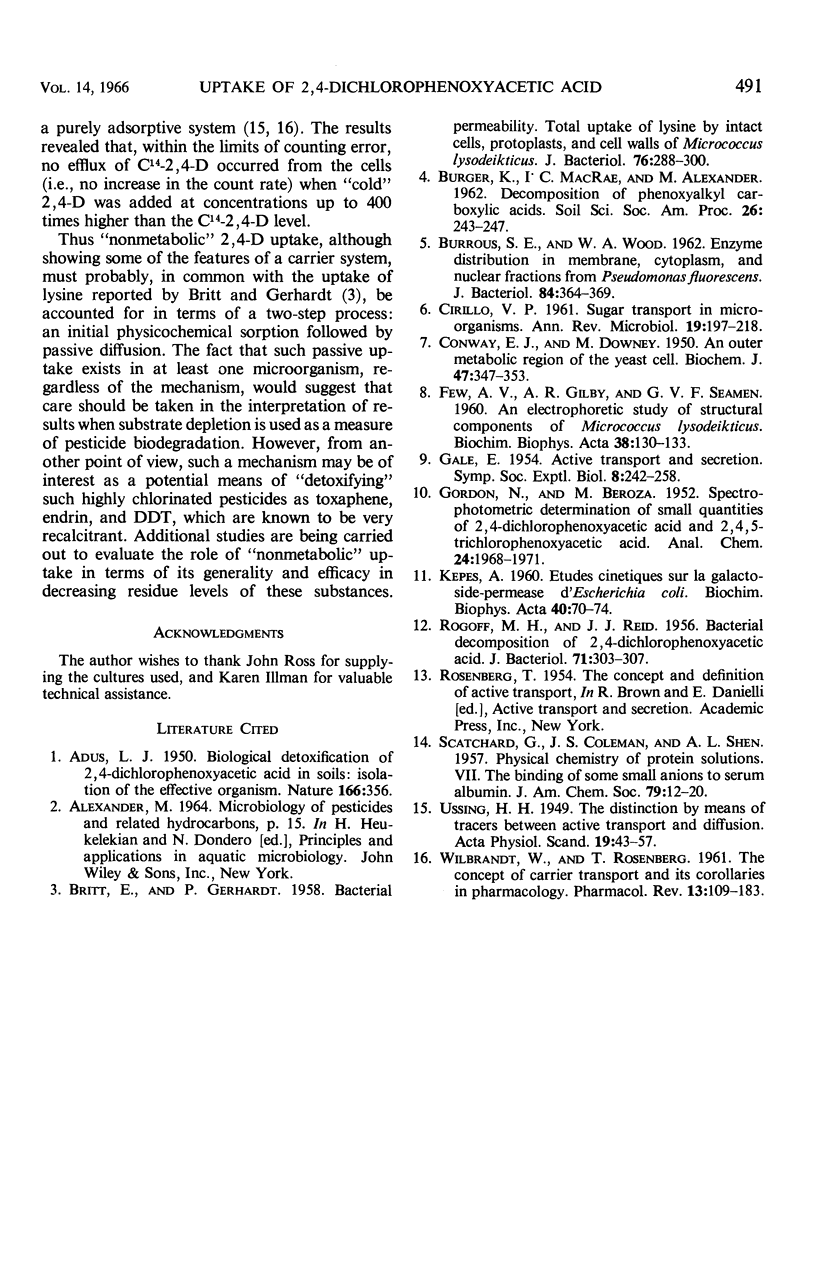
Selected References
These references are in PubMed. This may not be the complete list of references from this article.
- BRITT E. M., GERHARDT P. Bacterial permeability; total uptake of lysine by intact cells, protoplasts, and cell walls of Micrococcus lysodeikticus. J Bacteriol. 1958 Sep;76(3):288–293. doi: 10.1128/jb.76.3.288-293.1958. [DOI] [PMC free article] [PubMed] [Google Scholar]
- BURROUS S. E., WOOD W. A. Enzyme distribution in membrane, cytoplasm, and nuclear fractions from Pseudomonas fluorescens. J Bacteriol. 1962 Aug;84:364–369. doi: 10.1128/jb.84.2.364-369.1962. [DOI] [PMC free article] [PubMed] [Google Scholar]
- CONWAY E. J., DOWNEY M. An outer metabolic region of the yeast cell. Biochem J. 1950 Sep;47(3):347–355. doi: 10.1042/bj0470347. [DOI] [PMC free article] [PubMed] [Google Scholar]
- FEW A. V., GILBY A. R., SEAMAN G. V. An electrophoretic study on structural components of Micrococcus lysodeikticus. Biochim Biophys Acta. 1960 Feb 12;38:130–136. doi: 10.1016/0006-3002(60)91202-6. [DOI] [PubMed] [Google Scholar]
- KEPES A. [Kinetic studies on galactoside permease of Escherichia coli]. Biochim Biophys Acta. 1960 May 6;40:70–84. doi: 10.1016/0006-3002(60)91316-0. [DOI] [PubMed] [Google Scholar]
- ROGOFF M. H., REID J. J. Bacterial decomposition of 2, 4-dichlorophenoxyacetic acid. J Bacteriol. 1956 Mar;71(3):303–307. doi: 10.1128/jb.71.3.303-307.1956. [DOI] [PMC free article] [PubMed] [Google Scholar]
- WILBRANDT W., ROSENBERG T. The concept of carrier transport and its corollaries in pharmacology. Pharmacol Rev. 1961 Jun;13:109–183. [PubMed] [Google Scholar]


